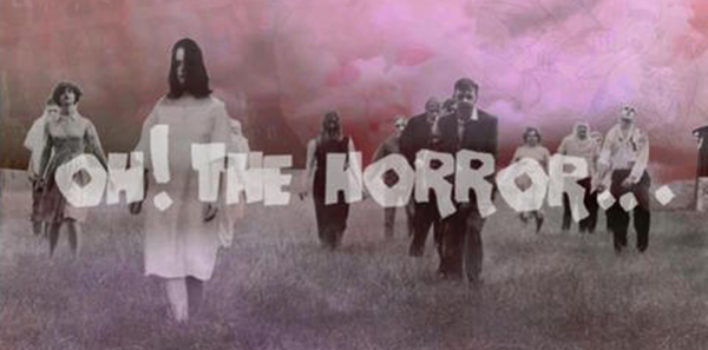Oh! The Horror… of ‘The Id’
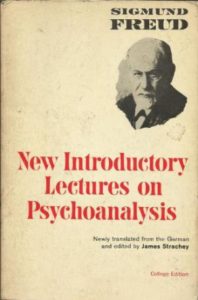 It’s a fairly rote story of human reason and scientific progress within the Enlightenment. Educated men seeking to understand something about humanity or the natural world and beginning—and soon becoming obsessed—with experiments on others or, often, themselves. These stories end up touching on one of the great truths of humanity and, simultaneously, on something Sigmund Freud asserted in the early parts of the 20th century: the “id.”
It’s a fairly rote story of human reason and scientific progress within the Enlightenment. Educated men seeking to understand something about humanity or the natural world and beginning—and soon becoming obsessed—with experiments on others or, often, themselves. These stories end up touching on one of the great truths of humanity and, simultaneously, on something Sigmund Freud asserted in the early parts of the 20th century: the “id.”
Sigmund Freud delineated three constituent parts of the human psyche: the “id,” the “ego,” and the “superego.” According to Freud, we are born with an id, the part of our psyche that is moved by our innate selfish desires, or pleasures as Freud put it. In the subsequent years, our ego is formed wherein we develop a sense of reality where we realize that we are not the only people who have wants and desires. The id, then, is tamed by the recognition of the harm it may do others or ourselves in the long term. Negotiations then begin between the id and the ego.
The “superego” constitutes the moral and ethical constraints that are, according to Freud, learned from the communities and people who raise us, but are not necessarily universally true; they are manufactured social constraints. Freud believed that the ego should be the strongest part of our psyche in that it walked the fine line between satisfying our innate desires while avoiding the guilt that came from the dissatisfaction of the superego. Freud used the image of a horse and rider in explaining the relationship between the ego and the id:
“One might compare the relation of the ego to the id with that between a rider and his horse. The horse provides the locomotor energy, and the rider has the prerogative of determining the goal and of guiding the movements of his powerful mount towards it. But all too often in the relations between the ego and the id we find a picture of the less ideal situation in which the rider is obliged to guide his horse in the direction in which it itself wants to go.”
-Sigmund Freud, The New Introductory Lectures on Psychoanalysis
In other words, Freud did not think it unnatural or even wholly bad for a person to be driven by their innate desires. Babies, by their very nature, have no regard for the feelings or needs of their parents. They want what they want and they cry and fuss if they don’t receive it. When they grow up, the expectation is they will develop an awareness of other people in their life, thus forming an ego. A balance then takes place. However, if the ego does not maintain its primacy of place then it becomes the mere passenger on the runaway stallion of the id. Or it becomes beaten down by the guilt and judgment of the superego.
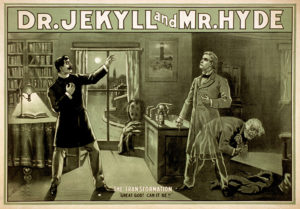 For our purposes we can translate Freudian concepts into the language of Robert Louis Stevenson’s The Strange Case of Dr. Jekyll and Mr. Hyde: Jekyll (the ego often with the moral and social constraints of the super-ego in place already) and Hyde (the id). When Jekyll drinks a potion, he turns to Hyde, initially controlling the conversions, but eventually giving himself over to Hyde involuntarily. Dr. Jekyll’s reasoning? He was concerned that the vices he was partaking in would cause him to lose his status and reputation, what Freud would probably consider a negative subjugation to the superego. So Jekyll created a potion to become another person who could satiate those desires without detection. As you can see, Jekyll’s id became so powerful that “it became him.” A man transformed into something less than human.
For our purposes we can translate Freudian concepts into the language of Robert Louis Stevenson’s The Strange Case of Dr. Jekyll and Mr. Hyde: Jekyll (the ego often with the moral and social constraints of the super-ego in place already) and Hyde (the id). When Jekyll drinks a potion, he turns to Hyde, initially controlling the conversions, but eventually giving himself over to Hyde involuntarily. Dr. Jekyll’s reasoning? He was concerned that the vices he was partaking in would cause him to lose his status and reputation, what Freud would probably consider a negative subjugation to the superego. So Jekyll created a potion to become another person who could satiate those desires without detection. As you can see, Jekyll’s id became so powerful that “it became him.” A man transformed into something less than human.
Thomas Cranmer, too, understood the psyche’s process during the Reformation. Ashley Null, leading scholar on Cranmer, summarizes Cranmer’s view of the human psyche:
“…what the heart loves, the will chooses, and the mind justifies. The mind doesn’t direct the will. The mind is actually captive to what the will wants, and the will itself, in turn, is captive to what the heart wants.”
While Freud believed that humanity had more ability to walk the tightrope between id, ego and superego outside of the interference of the divine, Cranmer believed that outside of the effective grace and mercy of God, humanity would retreat to the broken, dark and ultimately selfish desires of their own hearts—where he would probably claim was the origin of the id. Freud thought if the id was not kept in check, humanity would involuntarily become Hyde. Cranmer believed humanity would do so voluntarily.
Horror is obsessed with this theme. Everything from the works of David Cronenberg (The Fly, Dead Ringers) to werewolves, even the lanky frame of Norman Bates riffs on the darker drives of the human id. Horror often finds itself aligning with a very Judeo-Christian moral framework because of its insistence on presenting the innate id in humanity to be beastly, ghastly and all too willing to take control of the reins of the person.
Seth Brundle’s transformation from man to fly is a more “scientific” and permanent vision of the same transformation found in werewolf mythology. It is man’s regression back to beast (or insect) where thought, psyche and soul are consumed by instinct and a push towards the materialistic drives of hunger, thirst and procreation.
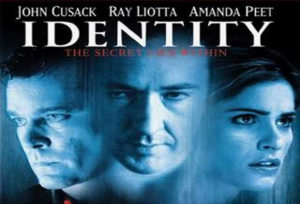 Norman Bates’ transformation is more psychological and in tune with Mr. Hyde in that he seeks an analogue—his mother—to act on his repressive sexual and violent urges towards unsuspecting women. He doesn’t physically become his mother, but in a sense he does become his mother in his mind as a means to detach himself from his actions, whether consciously or subconsciously.
Norman Bates’ transformation is more psychological and in tune with Mr. Hyde in that he seeks an analogue—his mother—to act on his repressive sexual and violent urges towards unsuspecting women. He doesn’t physically become his mother, but in a sense he does become his mother in his mind as a means to detach himself from his actions, whether consciously or subconsciously.
One of my favorite examples of the id, however, is in a film that has one foot planted in the thriller genre and one foot in the slasher sub-genre of horror: 2003’s Identity. In the film, we are presented with two parallel storylines that merge by the end of the film. One storyline follows a collection of people who find themselves holed up in an abandoned motel on an empty stretch of highway—mysteriously blocked from leaving—and they began to be killed, one by one. The parallel story is about a convicted murderer whose lawyers and psychologists are trying to acquire a stay of execution. As the film moves on, it becomes apparent that the characters at the motel are the incarnations of the convict’s multiple personalities. The convict’s lawyers and psychologists seek to kill off the part of his psyche that leads him to kill.
The assumption of the doctors and lawyers is that the id, or the part of the id that is “killing” the ego, can be destroyed leading once again to a balanced relationship between the id and ego. In other words, they are trying to save the man from himself; return him to the inherent goodness that underlies much Enlightenment/modern thought. Identity through a Twilight Zone-style turn finds its resolution in the failure of the Enlightenment’s program of “fixing” man. Matter of fact, his doctors end up isolating the very “personality” that was the problem in the first place.
The overwhelming witness of the horror genre towards the overly optimistic appraisal of human nature in the Enlightenment—and its thinkers, like Freud—is that it will ultimately fail because horror assumes a different starting point for its assessment of human nature. It finds agreement more with Cranmer. It says that something is broken, inherently, with the human and the world that humanity inhabits. It, therefore, would not be unusual for bad, even evil, people or events to exist, but, instead, finds goodness and mercy to be alien within the system. It assumes, also, that the sick should not be assumed to be effective at healing the sick. It takes a good, healthy surgeon to diagnose and cure.
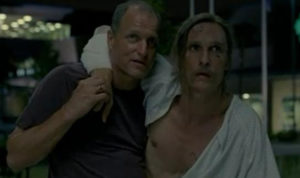 Often horror cinema, by implication, shows us that something—or someone—is breaking through the darkness and holding it back, overcoming it, in both external and internal relation to humanity. In a sense, it is fulfilling and re-establishing the proper dynamic between the id, ego and superego in Freudian terms. This alien goodness, in fact, may be the same something that Rust Cohle spoke about as he leered into the night sky in the final moments of True Detective:
Often horror cinema, by implication, shows us that something—or someone—is breaking through the darkness and holding it back, overcoming it, in both external and internal relation to humanity. In a sense, it is fulfilling and re-establishing the proper dynamic between the id, ego and superego in Freudian terms. This alien goodness, in fact, may be the same something that Rust Cohle spoke about as he leered into the night sky in the final moments of True Detective:
“Well, once there was only dark. You ask me, the light’s winning.”


